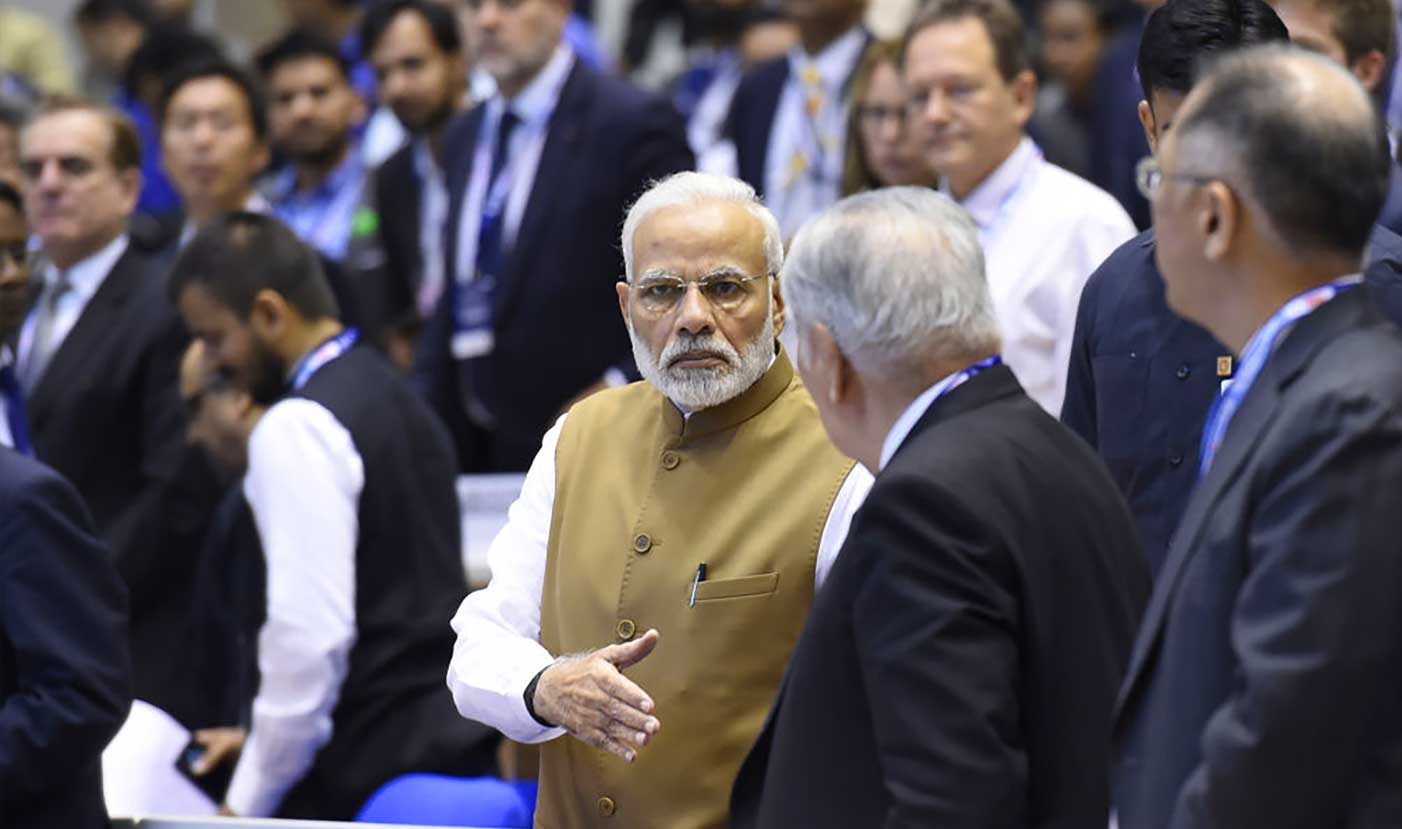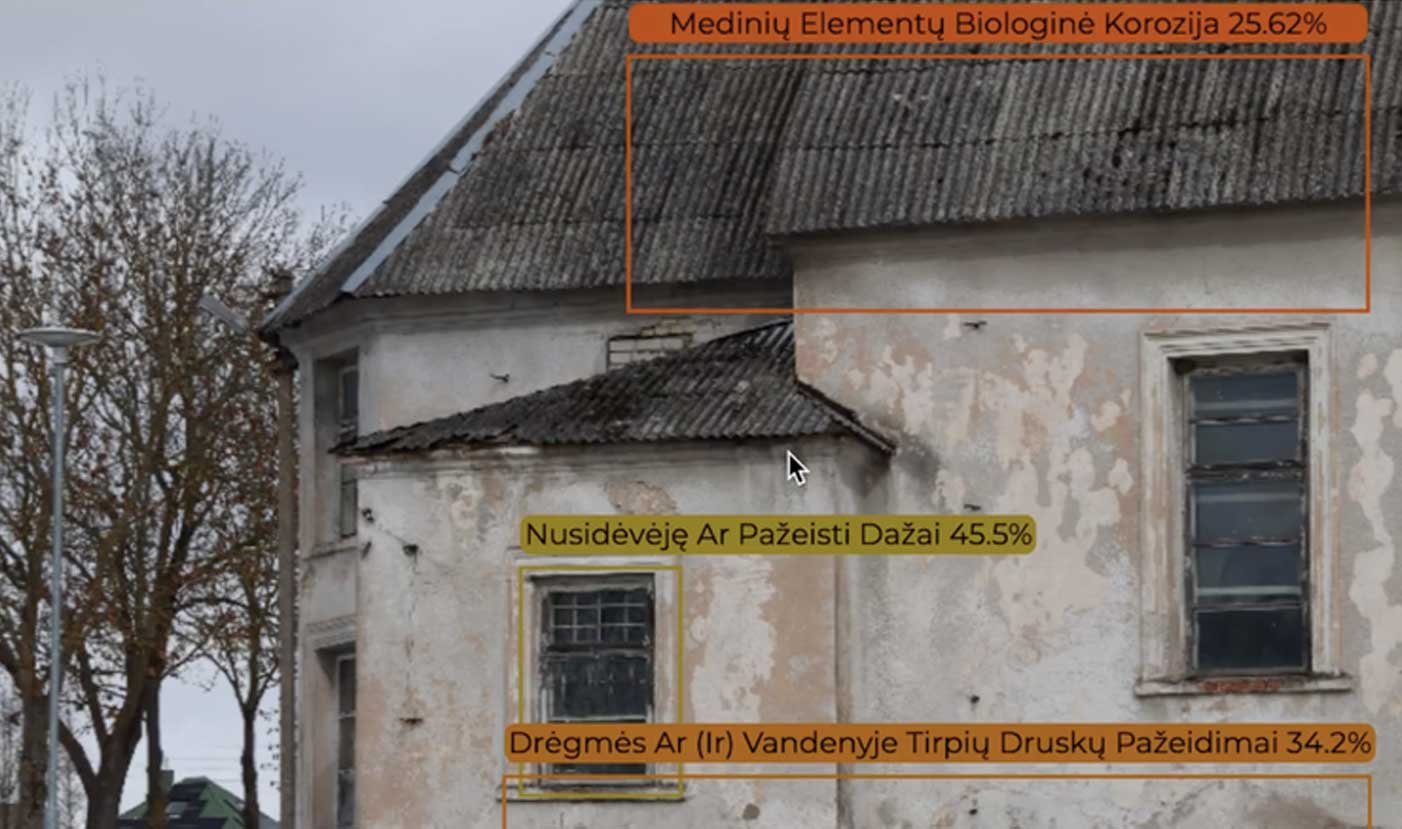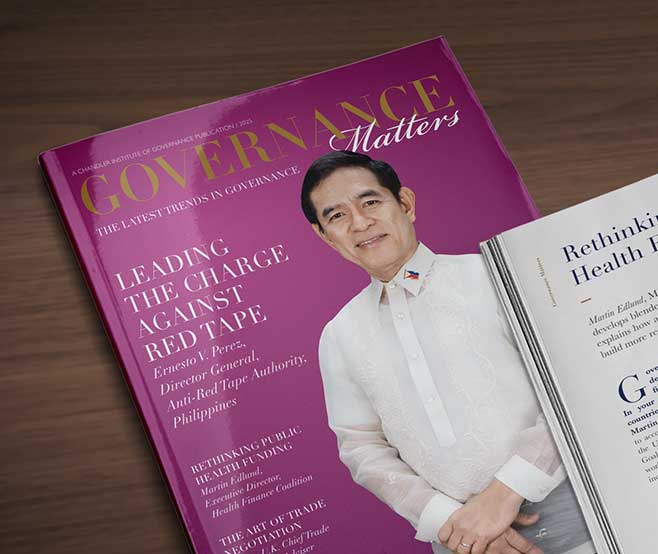Building Future-Ready Government
Public institutions face greater pressure than ever to adapt to an era of rapid, unpredictable change. Thomas Colson examines how governments are developing the skills and systems needed to spot emerging risks, respond, and shape better outcomes for their citizens.
Lorem ipsum dolor sit amet, consectetur adipiscing elit, sed do eiusmod tempor incididunt ut labore et dolore magna aliqua. Ut enim ad minim veniam, quis nostrud exercitation ullamco laboris nisi ut aliquip ex ea commodo consequat. Duis aute irure dolor in reprehenderit in voluptate velit esse cillum dolore eu fugiat nulla pariatur.
Heading 1
Heading 2
Heading 3
Heading 4
Heading 5
Heading 6
Lorem ipsum dolor sit amet, consectetur adipiscing elit, sed do eiusmod tempor incididunt ut labore et dolore magna aliqua. Ut enim ad minim veniam, quis nostrud exercitation ullamco laboris nisi ut aliquip ex ea commodo consequat. Duis aute irure dolor in reprehenderit in voluptate velit esse cillum dolore eu fugiat nulla pariatur.
Block quote
Heading 6
Ordered list
- Item 1
- Item 2
- Item 3
Unordered list
- Item A
- Item B
- Item C
Bold text
Emphasis
Superscript
Subscript
Why do some governments adapt to new challenges while others are unprepared? What sets apart administrations that organise for the future from those that become reactive or overwhelmed?
China’s Song Dynasty (960–1279) built one of the most sophisticated systems of government in history and presided over an era of remarkable economic and cultural achievement.1 Yet it struggled to adapt to mounting external threats and rapid technological change. Over time, bureaucratic inertia and inflexible institutions hampered its court, leaving it vulnerable to the Mongol invasion that ultimately brought its downfall.
The fall of the Song Dynasty demonstrates that even the best-governed societies can decline if they fail to recognise and respond to new challenges. The same is true of countries today. Those which fall behind rarely do so due to a lack of competence; more commonly, it is the failure to anticipate and prepare for the shifting sands of time.
Avoiding this fate requires practical ways to detect and interpret signals about the future and to build a sense of emerging trends and developments. It also means mobilising around ideas of the future, drawing on insights from across society to shape a vision that reflects collective priorities and aspirations for national progress. These practices are becoming an increasingly important focus for practitioners and governance experts. The United Nations Development Programme (UNDP), for instance, has developed a framework to promote the principles of anticipatory, adaptive, and agile governance into national frameworks.2 These capabilities will help to determine whether a government can be effective in a fast-changing, uncertain world.
Sensing the Future
All governments think about the future to different degrees – every national budget, infrastructure plan, or education reform rests on assumptions about how the world will change. Yet traditional planning and forecasting often assume that the future will resemble an adjusted version of the past, rather than accounting for new or disruptive scenarios.
Other methods help anticipate crises and trends that can arrive with little warning. A growing number of governments are now using strategic foresight – methods for anticipating change, exploring futures, and testing how today’s decisions might play out. Unlike traditional planning, which assumes a single expected path, strategic foresight scans for early signs of change, considers multiple scenarios, and stress-tests policies against a range of possibilities.
Some administrations have created foresight teams that bring together officials from different departments to discuss emerging trends in technology, demographics, or the environment. Others have added foresight to policy reviews, using scenario exercises or horizon scanning to spot risks and opportunities that might otherwise be missed.
Singapore’s Centre for Strategic Futures (CSF), established in 2009, is tasked with helping the government anticipate and prepare for long-term challenges. The CSF conducts horizon scanning to spot emerging trends, uses scenario planning to explore possible futures, and develops tools that support strategic thinking. Notably, the CSF sits within the Prime Minister’s Office, which allows it to play a central role in shaping government priorities and discussions about the future.
For instance, the CSF has led scenario planning exercises on topics including the future of work and automation in Singapore. These workshops brought together officials, industry experts, and academics to explore how technological change could affect jobs, skills, and social cohesion. A major part of its work is also dedicated to building foresight skills throughout the public sector, offering training and support to civil servants across ministries so that long-term thinking is embedded in policy and planning.
Strategic foresight does not mean predicting the future with certainty. Instead, it helps governments stay alert to change and prepare to respond. This practice is evolving, and practitioners are still learning how to use these methods effectively.
Those which fall behind rarely do so due to a lack of competence; more commonly, it is the failure to anticipate and prepare for the shifting sands of time.
The Power of Collaboration
Many governments are recognising that sensing the future effectively requires engaging people from across society. This can take many forms; in Ireland, citizens’ assemblies have brought together randomly selected groups of people from different walks of life to discuss major long-term questions, such as constitutional reform or climate policy. Over a series of weekends, participants hear evidence, debate options, and work toward recommendations that are then put to a national referendum or legislative action. This process has surfaced new concerns, such as the importance of climate adaptation in rural areas, and has helped policymakers anticipate public reactions to possible reforms.3 Crucially, it gives ordinary people a structured role in shaping the country’s direction, making it less likely that blind spots or emerging priorities will be missed.
Paris’s participatory budgeting offers another approach. Every year, residents can submit proposals for how a portion of the city’s budget should be spent, then vote on their favourite projects. Winning ideas – ranging from new green spaces to school upgrades – are funded and implemented.4 This system not only reveals what citizens value most but also allows governments to identify patterns in community desires, often highlighting priorities or opportunities that might not surface through official channels.
When governments create space for meaningful citizen input, such as deliberative assemblies or participatory budgeting, they gain a more nuanced, forward-looking view of society’s priorities. Involving people directly surfaces emerging issues, tests the public appetite for change, and helps to ensure that new policies reflect the society they serve.

Learn, Adapt, and Evolve
Governments must also be able to mobilise people, institutions, and resources quickly around new priorities. Many public agencies rely on established routines and approval processes. These are designed to ensure consistency and minimise risk, but they can also make it difficult to respond quickly to unexpected challenges or seize new opportunities.
For example, when a new technology – such as a digital payments platform or a rapid diagnostic test – becomes available, an agency may need to navigate multiple layers of approval before it can be adopted, causing delays even when swift action would be beneficial.
Many of today’s challenges require greater flexibility, cross-agency collaboration, and a shared sense of purpose than such systems were designed to accommodate. Some governments have recognised this. The United Arab Emirates’ Government Accelerators initiative, launched in 2016, brings together teams from different ministries to focus on specific national challenges through 100-day projects. Teams set concrete targets – such as reducing the time needed for medical licensing or increasing the uptake of digital government services – and work intensively to deliver practical results. The Accelerators have helped to deliver practical improvements to public services. One of the teams focused on road safety and cut traffic fatalities on targeted roads by 60%, while another linked the systems of several government agencies so parents could register a birth in a single transaction instead of seven separate ones.5
The National Institution for Transforming India (NITI Aayog) serves a similar purpose but in a larger and more complex setting. Formed in 2015 to replace the Planning Commission, it acts as a centre for policy experimentation and bridges national and state governments. The Governing Council is chaired by the Prime Minister and includes every state’s Chief Minister, which brings local perspectives to national planning.
NITI Aayog’s work often involves convening diverse stakeholders to identify shared priorities – such as clean energy, digital transformation, and inclusive development – and supporting progress through regular review and data analysis. Through initiatives such as the Aspirational Districts Programme, it tracks improvements in health, education, and infrastructure, allowing policymakers to see what is changing and to adapt their approaches accordingly. While NITI Aayog does not implement or enforce policy directly, its advisory role gives it flexibility to encourage innovation and collaboration across India.

Comfortable with Uncertainty
Certainty is no longer a realistic goal for governments. The pace and unpredictability of change mean that no amount of planning guarantees predictable outcomes. Instead of trying to predict the future, governments can build frameworks, skills, and habits that help institutions learn, adapt, and act as conditions change. Thriving in uncertainty takes experimentation, collaboration, and continuous learning – qualities that make governments resilient and future-ready. As Voltaire said, “Doubt is not a pleasant condition, but certainty is an absurd one.”6

Heading 1
Heading 2
Heading 3
Heading 4
Heading 5
Heading 6
Lorem ipsum dolor sit amet, consectetur adipiscing elit, sed do eiusmod tempor incididunt ut labore et dolore magna aliqua. Ut enim ad minim veniam, quis nostrud exercitation ullamco laboris nisi ut aliquip ex ea commodo consequat. Duis aute irure dolor in reprehenderit in voluptate velit esse cillum dolore eu fugiat nulla pariatur.

Block quote
Ordered list
- Item 1
- Item 2
- Item 3
Unordered list
- Item A
- Item B
- Item C
Bold text
Emphasis
Superscript
Subscript
Lorem ipsum dolor sit amet, consectetur adipiscing elit, sed do eiusmod tempor incididunt ut labore et dolore magna aliqua. Ut enim ad minim veniam, quis nostrud exercitation ullamco laboris nisi ut aliquip ex ea commodo consequat. Duis aute irure dolor in reprehenderit in voluptate velit esse cillum dolore eu fugiat nulla pariatur.
Endnotes
- https://afe.easia.columbia.edu/songdynasty-module/
- https://www.sparkblue.org/content/blog-employing-dynamic-management-to-stimulate-reflections-on-undp-myanmar-triple-a-approach
- https://citizensassembly.ie/about/
- https://participedia.net/case/participatory-budgeting-inparisfrance
- https://www.cityleadership.harvard.edu/wp-content/uploads/migrate/BHCLI_UAE_0005TC.pdf
- Voltaire, Letter to Frederick the Great, 6 January 1767, in Correspondance de Voltaire, ed. Theodore Besterman, vol. 8 (Geneva: Institut et Musée Voltaire, 1959), 276.
- Item 1
- Item 2
- Item 3


Thomas is the Principal Knowledge Officer at the Chandler Institute of Governance. He is responsible for writing and editing the Institute’s knowledge products, including "Governance Matters". Before joining the Chandler Institute of Governance, Thomas held senior editorial roles at a communications agency, where he developed digital campaigns for global organisations, and at "Business Insider", where he reported on U.K. and global politics. Thomas holds a Master’s degree from City, University of London, and a Master’s degree with Honours from the University of Edinburgh.
Lorem ipsum dolor sit amet, consectetur adipiscing elit, sed do eiusmod tempor incididunt ut labore et dolore magna aliqua. Ut enim ad minim veniam, quis nostrud exercitation ullamco laboris nisi ut aliquip ex ea commodo consequat. Duis aute irure dolor in reprehenderit in voluptate velit esse cillum dolore eu fugiat nulla pariatur.













